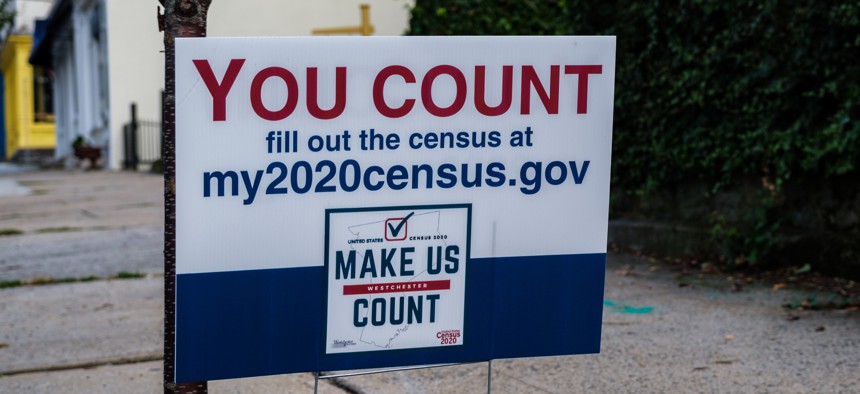Connecting state and local government leaders
These cities, in particular, said their population estimates seemed low, likely the result of the census being conducted after campuses switched to remote learning.
Multiple cities will challenge the results of the 2020 census, including college towns where officials say populations were undercounted as a result of students evacuating campuses during the coronavirus pandemic.
For example, in Tuscaloosa, Alabama, the 2020 population count totaled 99,600, a loss of nearly 2,000 residents from a 2019 estimate. Mayor Walt Maddox said the city was shortchanged by the timing of the census, which began in April after the University of Alabama canceled spring classes. The resulting count, he said, leaves the city just shy of 100,000 people, a benchmark that would allow Tuscaloosa to qualify for additional federal funding.
“When you take a look at that, and you compare it to the number of people you know are living there, it’s easy to see...that thousands upon thousands of students were not counted in the census,” he said last week. “I think we’re going to be able to easily demonstrate that.”
In Boston, Mayor Kim Janey told the Census Bureau that the city would challenge its 2020 population count of 675,647 due to concerns “related to our large college student and foreign-born populations.” In a letter sent this month, Janey said that city officials estimated that census counters missed at least 5,000 students and 500 inmates at correctional facilities, along with potentially thousands of residents in census tracts with self-reporting rates of less than 50%.
Some of those areas are popular for students living off campus, Janey said, many of whom “left the city temporarily when the campuses shifted to remote learning.” Other neighborhoods are known to have high numbers of foreign-born residents, a population that can be difficult to count under normal circumstances but faced extra hurdles last year, including the Trump administration’s efforts to include a citizenship question on the survey.
“Issues such as language barriers and government mistrust, particularly with the possibility of a citizenship question, may have resulted in an undercount of these traditionally difficult populations to count,” she wrote.
The Census Bureau had attempted to help colleges count those students during the pandemic, requesting in June that college presidents provide “roster information” for enrolled students who reside off campus. But it’s unclear how many complied with that request or how accurate the information was, leading both college administrators and city officials to wonder whether their populations were underrepresented in the final count.
In Bloomington, Indiana, for example, officials had expected a census count of roughly 86,000, an increase of 6,000 from 2010. Instead, the numbers decreased, dropping from 80,405 to 79,168. Because the census began weeks after Indiana University closed its campus, the result is “really not credible,” said Mayor John Hamilton.
“All the evidence we have, from school enrollments to taxes to all kinds of different measures, indicates growth,” he said in a radio interview. “This is what happens when you take a census that starts the week after your big university says, ‘Go home.’ And I’m very concerned about it.”
Challenges Relatively CommonCities, states and tribal nations can contest their census numbers via a process known as count question resolution, which begins accepting appeals from eligible entities in January. The program only revises the numbers used for population estimates over the next 10 years, which are used to allocate federal funding. But it doesn’t change the data that determines each state’s number of congressional seats or the process of redrawing the boundaries of legislative districts. Challenges are relatively common, according to federal data.
Some municipalities have already won their appeals. When the 2020 census showed a population drop in Nelsonville, Ohio—from 5,392 in 2010 to 4,612—state law dictated that the city would change to a village. The city council agreed to challenge the results, and a new count recorded Nelsonville's population at 5,373 residents. Frank LaRose, Ohio’s secretary of state, confirmed the results Oct. 12, the same day they were submitted.
“This story is just awesome,” he wrote on Twitter. “When the Census Bureau failed, this city came together in short order to get an accurate count and save their city.”
Kate Elizabeth Queram is a senior reporter for Route Fifty and is based in Washington, D.C.

NEXT STORY: The States With New Restrictions on Public Health Emergency Powers



